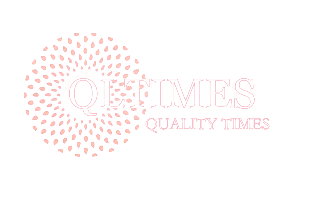The DNPA Code of Ethics sets guidelines for responsible, accurate, and ethical journalism within the digital news ecosystem. It serves to ensure transparency, fairness, and integrity in news reporting while maintaining the highest professional standards. Here’s an outline of the key principles:
1. Truth and Accuracy
- Commitment to Facts: DNPA members must prioritize accuracy in their reporting. Facts should be verified before publication, and all content should be backed by credible sources.
- Corrections: If inaccuracies are identified post-publication, corrections or clarifications must be made promptly and transparently.
2. Independence and Impartiality
- Editorial Independence: DNPA members should maintain editorial independence, free from any external pressures, whether from political entities, businesses, or other interest groups.
- Impartial Reporting: All coverage must be balanced and unbiased, providing diverse viewpoints while avoiding favoritism or prejudice in reporting.
3. Fairness and Objectivity
- Equal Representation: News stories should reflect diverse perspectives, offering a balanced portrayal of individuals or groups involved.
- Right to Reply: DNPA members must ensure that all individuals or organizations subject to critical reporting are given a fair opportunity to respond.
4. Respect for Privacy
- Personal Dignity: DNPA members must respect the privacy and dignity of individuals, avoiding undue intrusion into private lives unless justified by an overriding public interest.
- Sensitive Content: Care should be taken when reporting on sensitive topics such as grief, suffering, or traumatic events.
5. Accountability
- Responsibility to the Public: News publishers must remain accountable to their readers, being transparent about their editorial processes and ensuring content adheres to ethical journalism standards.
- Handling Complaints: A clear and accessible process must be in place to address grievances or complaints from the public, ensuring transparency in dealing with such issues.
6. No Plagiarism
- Originality: DNPA members must respect intellectual property rights by ensuring that all content is original or appropriately credited to the original creator.
- Attribution: When using third-party material, appropriate attribution must be given to the source, and necessary permissions must be obtained where applicable.
7. Avoiding Conflicts of Interest
- Transparency: DNPA members must disclose any potential conflicts of interest that may arise, whether financial, personal, or political, to maintain trust and credibility.
- Separation of Advertising and Editorial: There should be a clear distinction between advertising and editorial content, ensuring that advertising does not influence editorial decisions.
8. Protection of Minors
- Care with Child-Related Content: DNPA members should exercise caution when reporting on or involving children, ensuring their rights and safety are upheld.
- Consent: Appropriate consent must be obtained before including minors in news stories, with a focus on their best interests.
9. Protection from Hate Speech
- Promoting Tolerance: DNPA members should avoid publishing content that incites violence, hatred, or discrimination based on race, religion, gender, or nationality.
- Preventing Harm: Efforts must be made to ensure that reporting does not fuel intolerance or exacerbate social tensions.
10. Respect for Law and Order
- Adherence to Legal Standards: DNPA members should comply with all relevant laws and regulations, particularly those related to defamation, libel, and the protection of intellectual property.
- No Content Promoting Illegal Activities: DNPA members must refrain from publishing content that promotes or endorses illegal activities or behaviors.
By following these ethical guidelines, DNPA members can contribute to a responsible, truthful, and trustworthy digital news environment, ensuring the highest standards of journalism.
